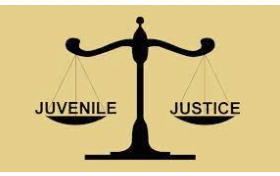The youth criminal justice system in Canada is designed with a unique set of principles and methods tailored to address the particular needs and situations of young lawbreakers. Although it shares some commonalities with the adult criminal justice system, its own distinct rules and regulations govern Canada’s youth justice system. This article will delve into the primary characteristics of the Canadian youth criminal justice system and examine the guiding principles that underpin it.
Youth Criminal Justice Act (YCJA)
The foundation of Canada’s youth justice system lies in the Youth Criminal Justice Act (YCJA), established in 2003 to replace the Young Offenders Act. This act provides a framework for managing youth offenders aged 12 to 17, with a focus on proportionality, accountability, and rehabilitation as crucial guiding principles for addressing young offenders.
Diversion and Non-Judicial Actions
A notable distinction between juvenile and adult criminal justice systems lies in the focus on diversion and non-judicial approaches for young lawbreakers. Rather than going to court, adolescents might be presented with alternative options like therapy, volunteering in the community, or other initiatives aimed at tackling their misconduct and averting recidivism.
Youth Sentences
When the court’s involvement becomes essential, the YCJA stipulates particular sentences for young individuals. The legislation aims to guarantee that punishments for youths are more focused on rehabilitation rather than being solely punitive, as seen in the adult system. Various sanctions might be imposed on young offenders, such as community-based sentences, probation, and detention, yet the primary objective remains their rehabilitation and successful reintegration into society.
Youth Rights and Protections
The YCJA includes several provisions to protect the rights of young offenders. For instance, it requires that young offenders be informed of their rights and be allowed to consult with legal counsel. It also emphasizes the importance of privacy and protecting the identity of the young person.
Custody for Youth Offenders
While the focus is on rehabilitation, there are circumstances where young offenders may be sentenced to custody. However, the YCJA places a significant emphasis on minimizing the use of custody and ensuring that it is a last resort. The act also sets out specific rules and standards for the treatment of young people in custody facilities.
Transfers to Adult Court
In exceptional cases, a youth offender may be transferred to adult court if the court finds that the youth’s actions and circumstances warrant adult sentencing. However, this is a complex process, and the YCJA establishes stringent criteria for such transfers.
Record Suspensions and Rehabilitation
A distinctive aspect of the juvenile justice system is the possibility of record suspensions. Under specific conditions, youthful lawbreakers who have served their time and exhibited reform can request to have their records suspended. This enables them to begin anew with a clear record, minimizing the effects of their criminal history on their future opportunities.
Child Pornography Lawyer
While child pornography offenses fall under the criminal law system in Canada, they can involve young offenders. Child pornography cases concerning youth offenders are addressed within the youth criminal justice framework. Lawyers who specialize in such cases, often referred to as a child pornography lawyer, play a crucial role in representing young individuals accused of these offenses. They navigate the complexities of the YCJA to ensure that the young offender’s rights are protected and that they receive an appropriate sentence or rehabilitative measures.
The youth criminal justice system in Canada is formulated to create equilibrium between holding young offenders responsible and facilitating their rehabilitation. It acknowledges that while young individuals may err, they also merit chances for atonement and re-assimilation into the community. By prioritizing diversion, rehabilitation, and safeguarding the rights of young people, the system aspires to cater to the best interests of these offenders while ensuring they answer for their wrongdoings. This exceptional methodology exhibits Canada’s dedication to a judicial system that comprehends the unique requirements and susceptibilities of young people entangled with legal issues.




